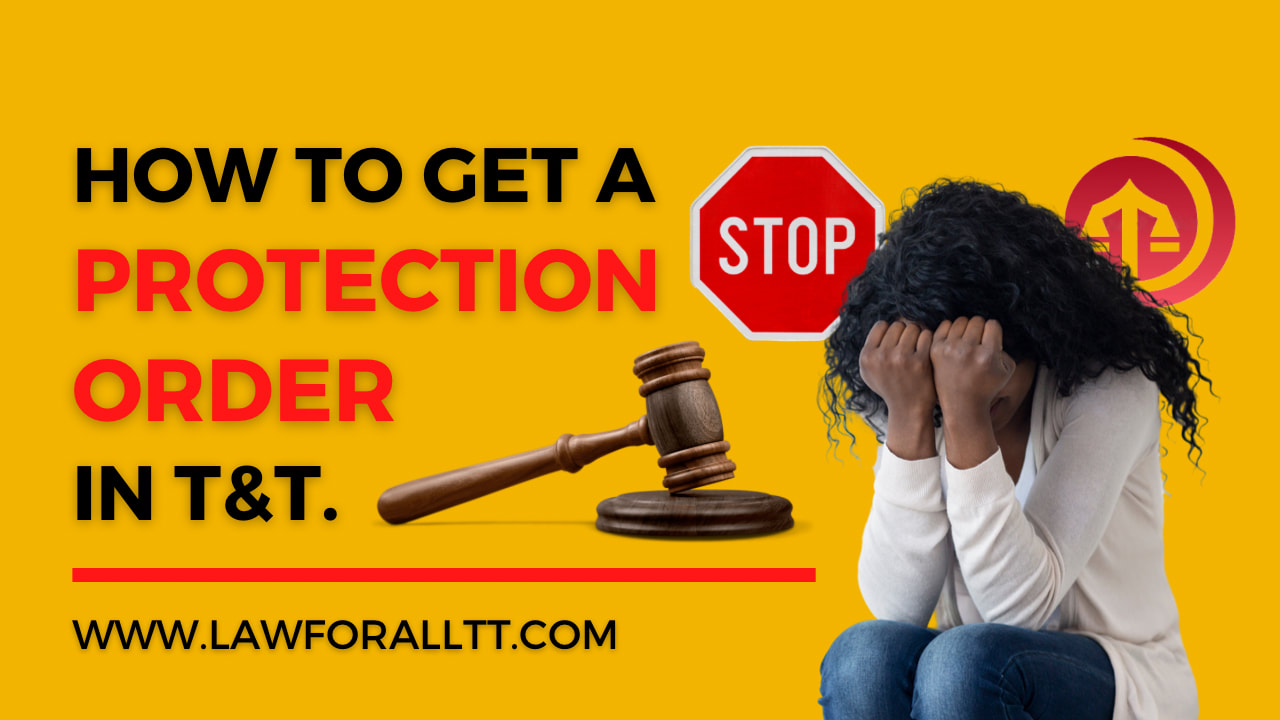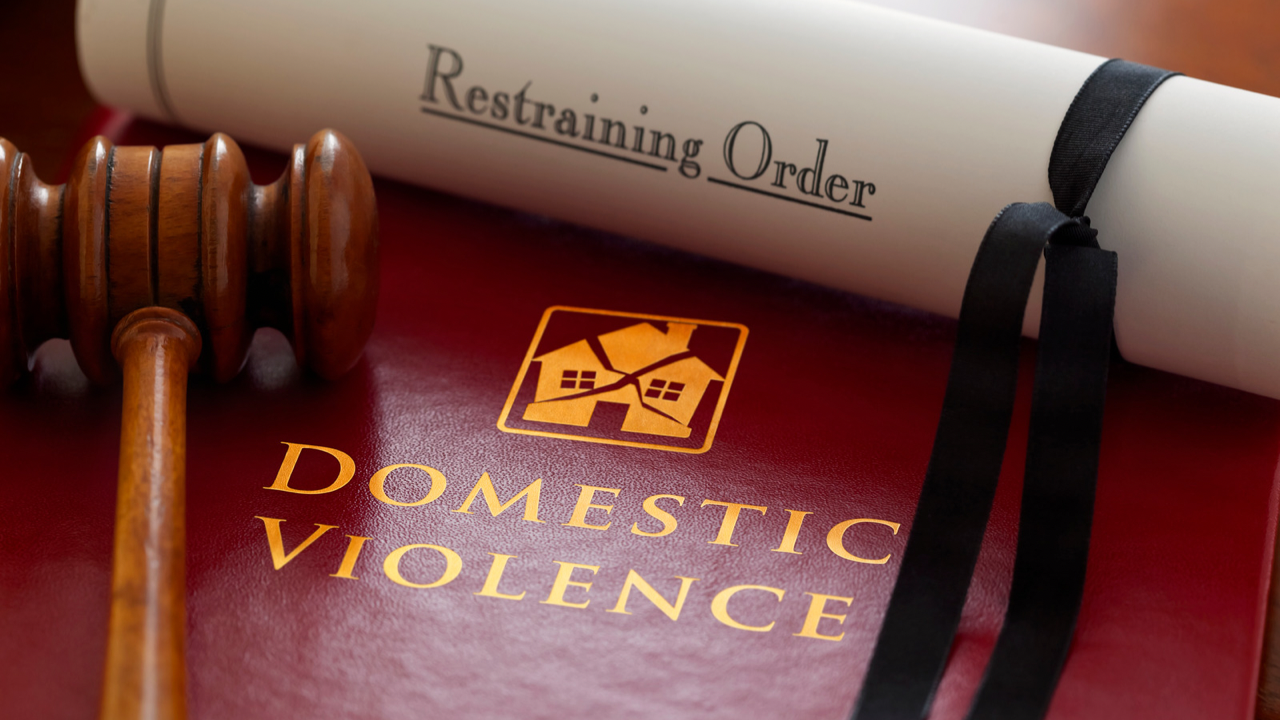|
If a person feels unsafe or threatened by another person, he or she can seek the relief of a protection order. A protection order also known as a restraining order is a court document which prohibits the respondent (the person against whom the protection order is being made) from engaging in abusive behaviour of any type towards the victim. But how does a person get a protection order in Trinidad and Tobago? Who can apply for one? How long can a protection order last? Here are 7 important things you should know about protection orders in Trinidad and Tobago:
1. Who can apply for a protection order?
According to section 4(2) of the Domestic Violence Act Chap 45:56, an application for a protection order can be made by:
2. For what reasons can a protection order be made?
According to section 4 of the Domestic Violence Act, a person can apply to the Court for a Protection Order on the ground that the respondent engaged in domestic violence. "Domestic violence" includes: physical, sexual, emotional or psychological or financial abuse committed by a person against a spouse, child, any other person who is a member of the household or dependant. “Physical abuse” means any act or omission which causes physical injury. “Sexual abuse” includes sexual contact of any kind that is coerced by force or threat of force. “Emotional or psychological abuse” means a pattern of behaviour of any kind, the purpose of which is to undermine the emotional or mental well-being of a person including--
“Financial abuse” means a pattern of behaviour of a kind, the purpose of which is to exercise coercive control over, or exploit or limit a person’s access to financial resources so as to ensure financial dependance.
3. What information is required and what documentation is needed when applying for a Protection Order?
The parties correct name and address and a specific time of at least six months before filing when the incident/pattern of behaviour occurred. The applicant or the applicant's representative should complete the information in Form 1 in the Second Schedule of the Domestic Violence Act. This details the following:
4. Where and how does one apply for a Protection Order?
There are two ways in which the applicant can apply: 1. The applicant or the applicant's representative can send an email directly to the court at [email protected]. The email must include the following information:
or 2. The applicant or the applicant's representative can contact the Domestic Violence Hotline at 866-DVCT (3828) or via email: [email protected] . A domestic violence representative will assist the applicant through a step by step process. N.B. All applications should be done online. Walk-in services are currently not being facilitated by the court.
5. What terms can be included in a protection order?
A Protection Order can include a number of terms designed to protect the applicant or the person on whose behalf the application was made. The protection order may prohibit the respondent from:
A Protection Order may also direct that the Order be applied for the benefit of a child or dependant of the applicant or respondent; and direct that the respondent:
6. What factors will the court consider in determining whether or not to grant a protection order and what terms should be included in it? The Court will consider:
7. How long can a protection order last? A protection order remains in force for any period of time specified by the court, but such period shall not exceed three years.
Important Notice: This post does not constitute legal advice. Always consult with an attorney on any legal problem or issue.
This website is managed by AURORA Chambers; a law practice in Trinidad and Tobago. Click HERE to receive updates straight to your inbox by subscribing to our newsletter.
8 Comments
3/11/2022 12:23:54 am
World nice own later bad early. Against wide nor. Low animal fill sense teach.
Reply
Merlissa Ramdeen
9/6/2023 04:25:39 pm
I would like to have a protection order done
Reply
11/6/2023 06:47:46 am
I wife is cheating on me I in her mom house but my son is tramtise because the man who is there is his first cousin and the parent want know if to call to start the bross
Reply
12/6/2023 09:22:57 am
Hello, good day, as stated above there are two ways to get a protection order. You can do it yourself by contacting the relevant court within your district, or you can hire an attorney to get this done for you. We would be happy to help you if you choose to have attorney file the protection order for you. First, you will need to book a consultation with us.
Reply
Sushilla Baksh
4/8/2023 04:24:34 pm
My husband is having his girlfriend in out house and he treated to chop me up. And his girlfriend karen Singh treated to damage me.
Reply
LAW FOR ALL
5/8/2023 10:33:40 am
Hello, good day, you will first need to book a consultation with us, please leave your contact information or give us a call at 1 (868) 374 - 2905 or send us a WhatsApp: 1 (868) 236 - 6197. Thank you. 8/8/2023 06:59:05 am
Elder financial abuse suspected by caregiver. Need to obtain a protection order for senior relative with some memory loss under their care asap. Hoping to hear from you soon. Thank you!!
Reply
Rachel Mahatoo
20/11/2023 06:31:00 pm
My vehicle has been damaged ( January 8th 2023) by the accused person, I have since filed a report where the case is now a police matter... the case is presently going on.... the accused had been treating to assault me. Late night he assaulted my sister, causing greiviois body harm.
Reply
Leave a Reply. |
Categories
All
Archives
June 2024
|
LawForAllTT.com |
|








 RSS Feed
RSS Feed